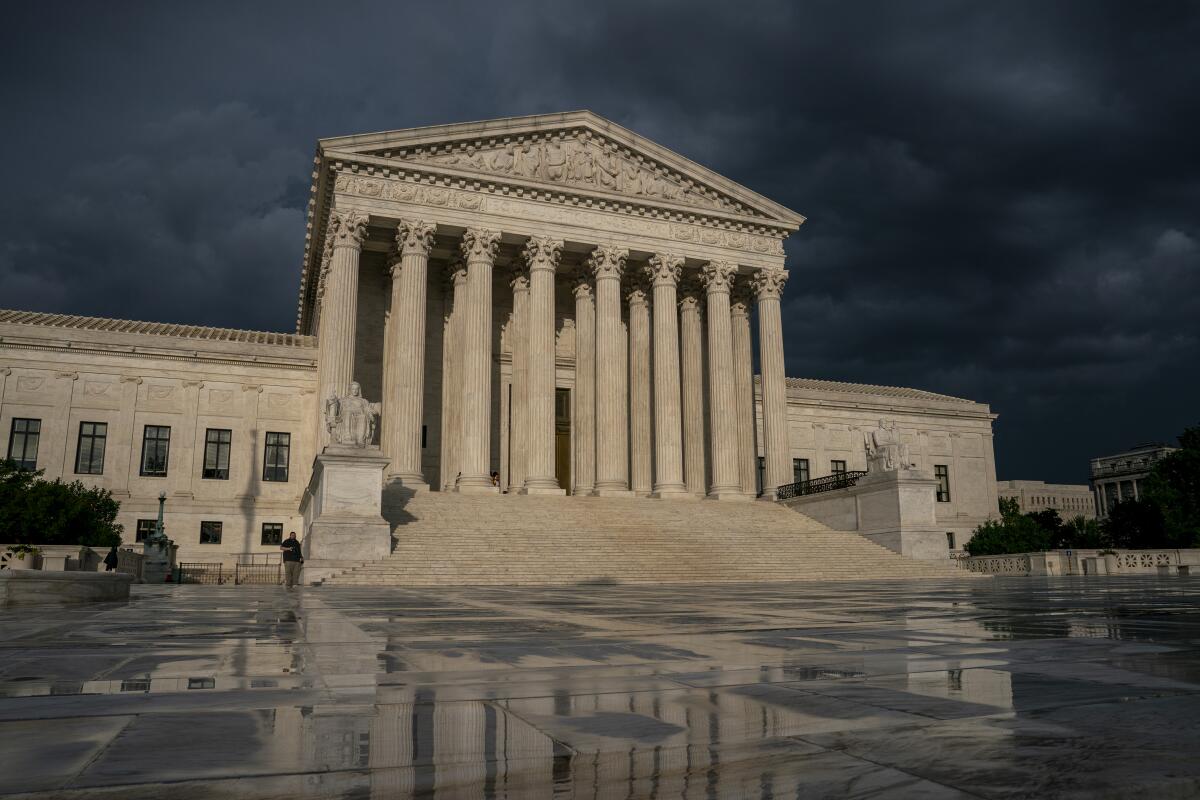Editorial: Don’t make it easier for police to enter your home

- Share via
The 4th Amendment says: “The right of the people to be secure in their persons, houses, papers, and effects, against unreasonable searches and seizures, shall not be violated.” Too often, however, the privacy protected by that amendment has been undermined by exceptions blessed by the courts.
On Wednesday the Supreme Court was asked in a California case to carve out yet another exception — allowing police to enter someone’s home without a warrant when an officer has probable cause to believe that even a minor offense had been committed. Such a ruling would be a disaster for the right of privacy.
In October 2016 California Highway Patrol Officer Aaron Weikert noticed that Arthur Lange was playing loud music and honking his horn as he was driving home in Sonoma. Weikert later testified that he believed the music and honking violated state laws against excessive noise.
Weikert followed Lange home and, as Lange was preparing to turn into his driveway, the officer said he turned on flashing red lights, a signal that a motorist should stop. Lange pulled into his garage and then, as the electric garage door was descending, Weikert used his foot to stop it from closing. Then he entered the garage and noticed signs that Lange was intoxicated.
Lange’s lawyer sought to suppress the evidence obtained by Weikert because the officer had entered Lange’s residence without a warrant. But California courts took the position that the officer didn’t need a warrant because of “exigent circumstances” — legal jargon for an emergency in which police must act swiftly. The Supreme Court in the past has indicated that “hot pursuit” of a fleeing felony suspect is also an exigent circumstance.
In this case, the “exigent circumstances” were underwhelming: The officer supposedly had probable cause to believe that Lange, by ignoring the flashing lights, had committed the misdemeanor offenses of failing to obey a lawful order and obstructing a peace officer. Thus a cascade of minor offenses became a justification for invading the privacy of Lange’s home.
To resolve this case, the court need not hold that police may never enter a home without a warrant in search of a misdemeanor suspect; the issue is whether the court will adopt a rule permitting all such actions, no matter how trivial the offense.
At Wednesday’s argument, some justices seemed concerned about the effect of a decision in favor of Lange. Justice Stephen G. Breyer pointed out that in some states, misdemeanor offenses include serious crimes. Lange’s lawyer, Jeffrey Fisher, acknowledged that fact, but he argued persuasively that the court should treat such incidents on a case-by-case basis.
That would be a sensible approach at any time. But it’s especially important that the court not give police officers more leeway to skirt the 4th Amendment during a national reckoning about police misconduct.
More to Read
A cure for the common opinion
Get thought-provoking perspectives with our weekly newsletter.
You may occasionally receive promotional content from the Los Angeles Times.










